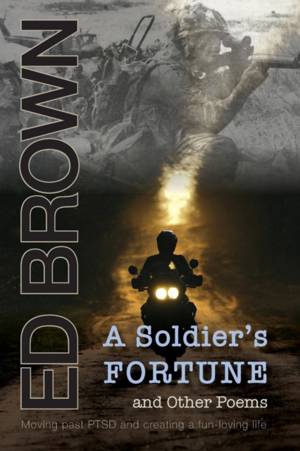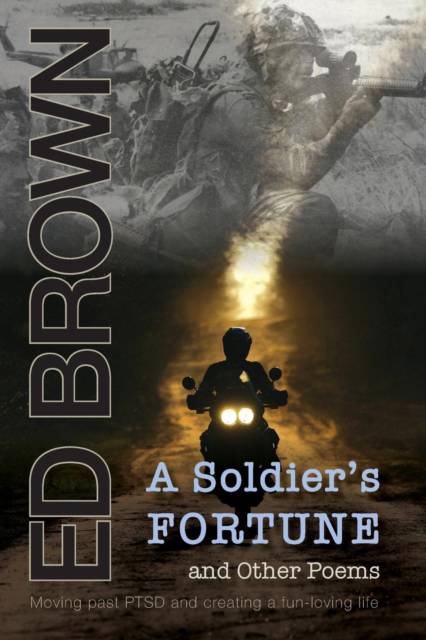
- Retrait gratuit dans votre magasin Club
- 7.000.000 titres dans notre catalogue
- Payer en toute sécurité
- Toujours un magasin près de chez vous
- Retrait gratuit dans votre magasin Club
- 7.000.0000 titres dans notre catalogue
- Payer en toute sécurité
- Toujours un magasin près de chez vous
A Soldier's Fortune and Other Poems
Moving Past Ptsd and Creating a Fun-Loving Life
Ed BrownDescription
Ed Brown is a Canadian Forces veteran of Tsimpshian First Nations and Scottish-Canadian heritage. During his 19-year military career, he served on peacekeeping missions to the former Yugoslavia, Israel, Syria and Turkey (in support of Afghanistan), and aboard HMCS Calgary, Regina, Winnipeg and Moresby. Ed began writing poetry as therapy for PTSD (posttraumatic stress disorder).
Songwriter Denis Donnelly says, "With strong street language that often gains power from echoing the innocence of nursery rhymes, these poems of Ed's peacekeeping experiences, both narrative and psychological, paint an unforgettable picture of war and its human costs."
Psychologist Agnes Sawchyn says that Ed writes "with unflinching frankness and emotional honesty... Ed extends a message of hope to others by describing what, in the end, made his journey back to health possible and worth navigating: his love for his children, the apprehension and joy of experiencing new love, the simple beauties of nature, and an irrepressible sense of humour and playfulness."
Full Advance Reviews
"There are at least two gifts in the poetic, and sometimes wrenching, accounts of a soldier's journey. The first is that the scenes of people caught up in war's horrors are brought vividly to life. The second is the gift of following a returning soldier through despair and personal struggles into final acceptance. With strong street language that often gains power from echoing the innocence of nursery rhymes, these poems of Ed's peacekeeping experiences, both narrative and psychological, paint an unforgettable picture of war and its human costs, and testify that those costs are not only to those in the line of fire." - Denis Donnelly, BMus, songwriter, poet, choir director, arranger, workshop leader
"With unflinching frankness and emotional honesty, Ed has described the horror of war as viewed through the eyes of a Canadian Forces peacekeeper. His experience of the Posttraumatic Stress Disorder that resulted, with nightmares, horrific images, violent emotions, confused thoughts, feelings of guilt and shame, and loss of sense of self, is painfully captured in his words, as is his struggle to find his way back from despair and feeling broken to rediscovering the "freedom to live and enjoy life." Ed extends a message of hope to others by describing what, in the end, made his journey back to health possible and worth navigating: his love for his children, the apprehension and joy of experiencing new love, the simple beauties of nature, and an irrepressible sense of humour and playfulness." - Dr. Agnes Sawchyn, psychologist
Spécifications
Parties prenantes
- Auteur(s) :
- Editeur:
Contenu
- Nombre de pages :
- 118
- Langue:
- Anglais
Caractéristiques
- EAN:
- 9781927755044
- Date de parution :
- 12-03-14
- Format:
- Livre broché
- Format numérique:
- Trade paperback (VS)
- Dimensions :
- 152 mm x 229 mm
- Poids :
- 167 g

Les avis
Nous publions uniquement les avis qui respectent les conditions requises. Consultez nos conditions pour les avis.






